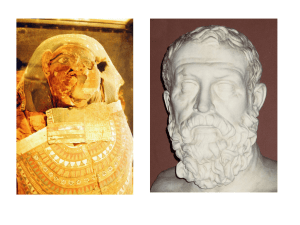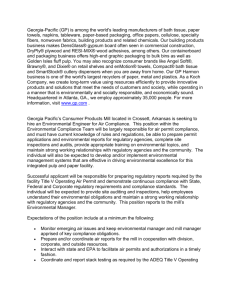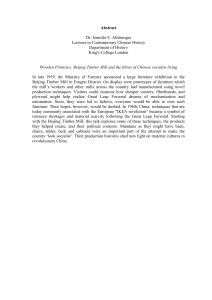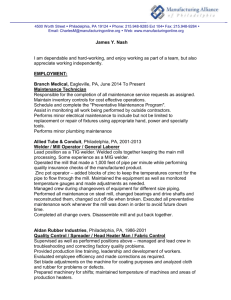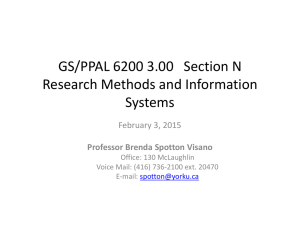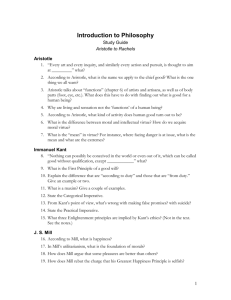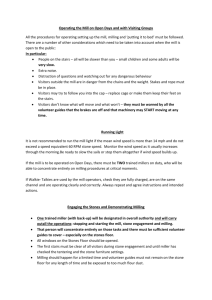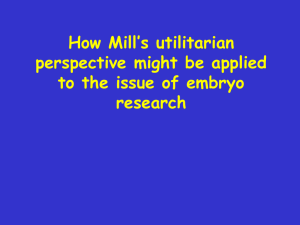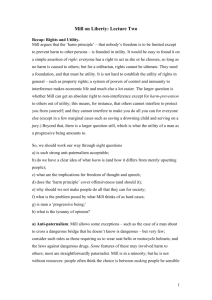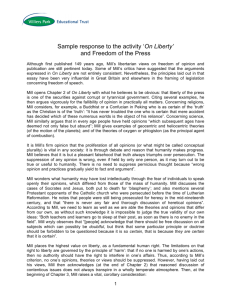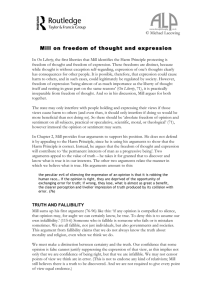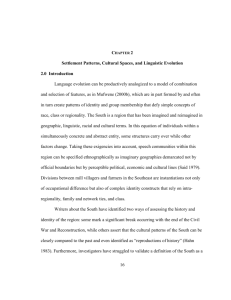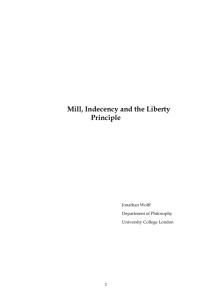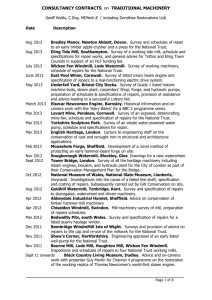Worksheet
advertisement
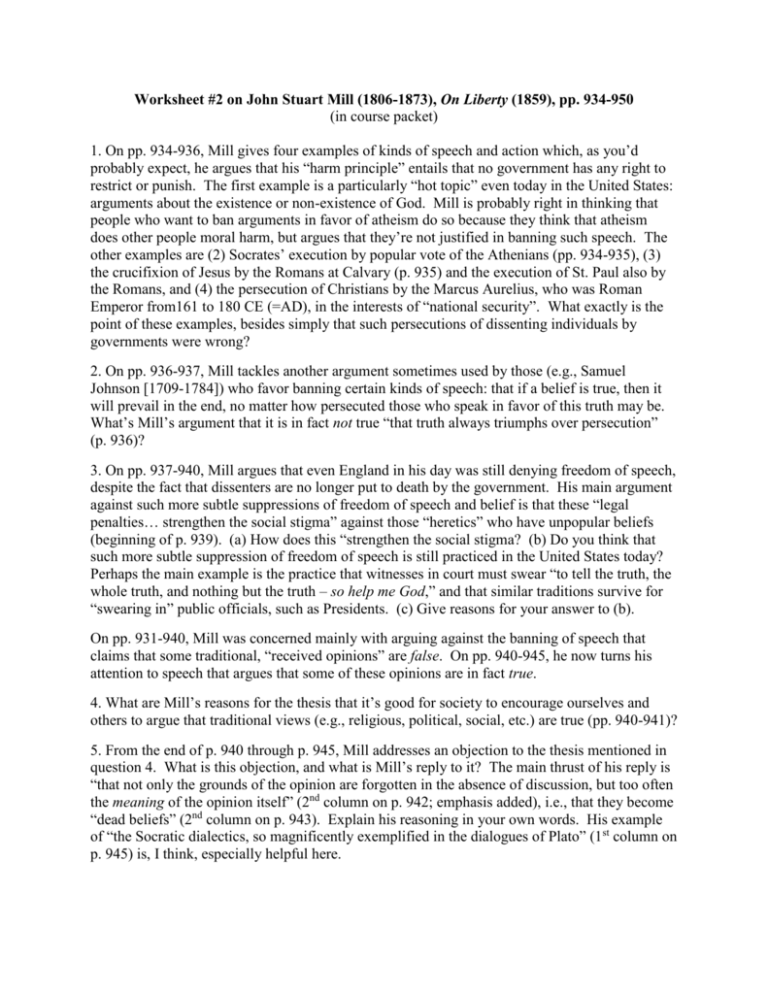
Worksheet #2 on John Stuart Mill (1806-1873), On Liberty (1859), pp. 934-950 (in course packet) 1. On pp. 934-936, Mill gives four examples of kinds of speech and action which, as you’d probably expect, he argues that his “harm principle” entails that no government has any right to restrict or punish. The first example is a particularly “hot topic” even today in the United States: arguments about the existence or non-existence of God. Mill is probably right in thinking that people who want to ban arguments in favor of atheism do so because they think that atheism does other people moral harm, but argues that they’re not justified in banning such speech. The other examples are (2) Socrates’ execution by popular vote of the Athenians (pp. 934-935), (3) the crucifixion of Jesus by the Romans at Calvary (p. 935) and the execution of St. Paul also by the Romans, and (4) the persecution of Christians by the Marcus Aurelius, who was Roman Emperor from161 to 180 CE (=AD), in the interests of “national security”. What exactly is the point of these examples, besides simply that such persecutions of dissenting individuals by governments were wrong? 2. On pp. 936-937, Mill tackles another argument sometimes used by those (e.g., Samuel Johnson [1709-1784]) who favor banning certain kinds of speech: that if a belief is true, then it will prevail in the end, no matter how persecuted those who speak in favor of this truth may be. What’s Mill’s argument that it is in fact not true “that truth always triumphs over persecution” (p. 936)? 3. On pp. 937-940, Mill argues that even England in his day was still denying freedom of speech, despite the fact that dissenters are no longer put to death by the government. His main argument against such more subtle suppressions of freedom of speech and belief is that these “legal penalties… strengthen the social stigma” against those “heretics” who have unpopular beliefs (beginning of p. 939). (a) How does this “strengthen the social stigma? (b) Do you think that such more subtle suppression of freedom of speech is still practiced in the United States today? Perhaps the main example is the practice that witnesses in court must swear “to tell the truth, the whole truth, and nothing but the truth – so help me God,” and that similar traditions survive for “swearing in” public officials, such as Presidents. (c) Give reasons for your answer to (b). On pp. 931-940, Mill was concerned mainly with arguing against the banning of speech that claims that some traditional, “received opinions” are false. On pp. 940-945, he now turns his attention to speech that argues that some of these opinions are in fact true. 4. What are Mill’s reasons for the thesis that it’s good for society to encourage ourselves and others to argue that traditional views (e.g., religious, political, social, etc.) are true (pp. 940-941)? 5. From the end of p. 940 through p. 945, Mill addresses an objection to the thesis mentioned in question 4. What is this objection, and what is Mill’s reply to it? The main thrust of his reply is “that not only the grounds of the opinion are forgotten in the absence of discussion, but too often the meaning of the opinion itself” (2nd column on p. 942; emphasis added), i.e., that they become “dead beliefs” (2nd column on p. 943). Explain his reasoning in your own words. His example of “the Socratic dialectics, so magnificently exemplified in the dialogues of Plato” (1st column on p. 945) is, I think, especially helpful here. 6. After having addressed first freedom of speech claiming that some received opinions are false (pp. 931-940) and that some received opinions are true (pp. 940-945), pp. 945-949 concern the need for free discussion about “conflicting doctrines [that], instead of being one true and the other false, share the truth between them” (1st column on p. 946). What are Mill’s reasons for this thesis? 7. Finally, on pp. 949-950, Mill discusses speech in which an opinion in an “intemperate” way, such that its expression causes “offense” to someone else. Perhaps surprisingly, he argues that there are some cases in which it is in “the interest… of truth and justice it is… important to restrain this employment of vituperative [i.e., offensive or abusive] language” (p. 950). (a) What kind of language does he have in mind here? (b) Do you think that this claim is inconsistent with his “harm principle”? Give reasons for your answer.

